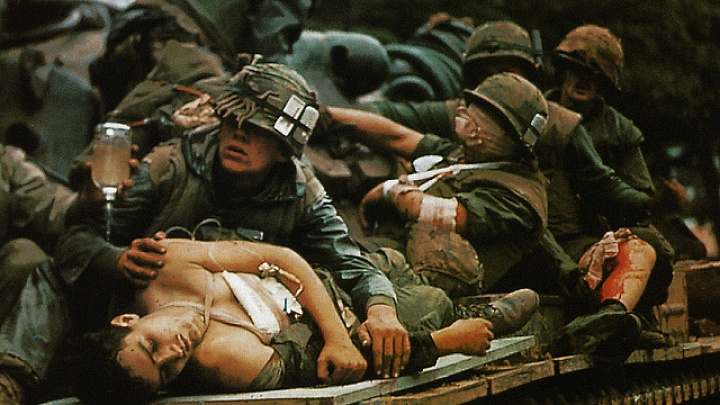
Wars end, but for those who live through them, they are not over. Thats the common thread in these two otherwise completely dissimilar books, one fictional and one not, both looking back at the Vietnam War and its aftermath. The Sympathizer, a brilliantly crafted novel by the Vietnamese-American writer Viet Thanh Nguyen, opens a window on the Vietnamese experience of that long conflict a window Americans rarely looked through, during the war or after. Michael Putzels The Price They Paid gives a gripping account of the war as it was fought by the pilots and crewmen of one U.S. helicopter unit, and shows how those harrowing experiences continued to shape their lives for years after they came home.
The Sympathizer begins in the final days before Saigons fall or liberation depending on which sides vocabulary you choose at the end of April, 1975. As the novel opens, its narrator, a young captain and an aide to a South Vietnamese general, is assigned to approach an American contact and arrange for the evacuation of the general and his family and members of his staff (this, mind you, several days before South Vietnam officially surrendered, so the officers on the evacuation list were technically deserting their posts). But the young captain is not only a South Vietnamese officer; he is also, as he reveals in the first words of the novel, a spy, a sleeper, a spook, a man of two faces, that is, a Communist agent, secretly working for the side that is just about to sweep into the South Vietnamese capital and end the 30-year war for a unified, Communist Vietnam.
Serving in one army while spying for its enemy is one contradiction in the narrators identity, but not the only one. As the story begins to unfold, we learn that he is racially mixed, the son of a Vietnamese mother and a French father. And six years as a student in California have left him culturally mixed as well, not just speaking unaccented American English but also thoroughly attuned to American attitudes and ways of life. With that variegated background, Nguyens protagonist, whose name we never learn, is at home in the multiple worlds he passes through in the course of the novel South Vietnam and its army, the underground revolutionary movement and the wartime U.S. military establishment in Saigon; then the postwar Vietnamese emigre community in California (where his spymasters sent him to keep informing them on their past and possibly future enemies); and, ultimately, back to the new Vietnam under its Communist rulers. But the captain as he is called in the novel does not fully belong to any of those worlds. He views all of them through both an insiders and an outsiders eyes, which give him a truer and deeper picture than the inhabitants themselves can see.
To be sure, not all fit the hurtful stereotype of the damaged Vietnam veteran. But that does not mean they werent affected by their experience. And it should not be forgotten that Americas past and present wars did not happen just to Americans.
That multi-layered vision is one reason that The Sympathizer is such an extraordinary and illuminating novel. A second reason is that it is stunningly well written, in a voice that rings utterly true from first page to last. And a third is its perfect-pitch authenticity of detail. Viet Thanh Nguyen was only four years old when the war ended and his family (like his fic
